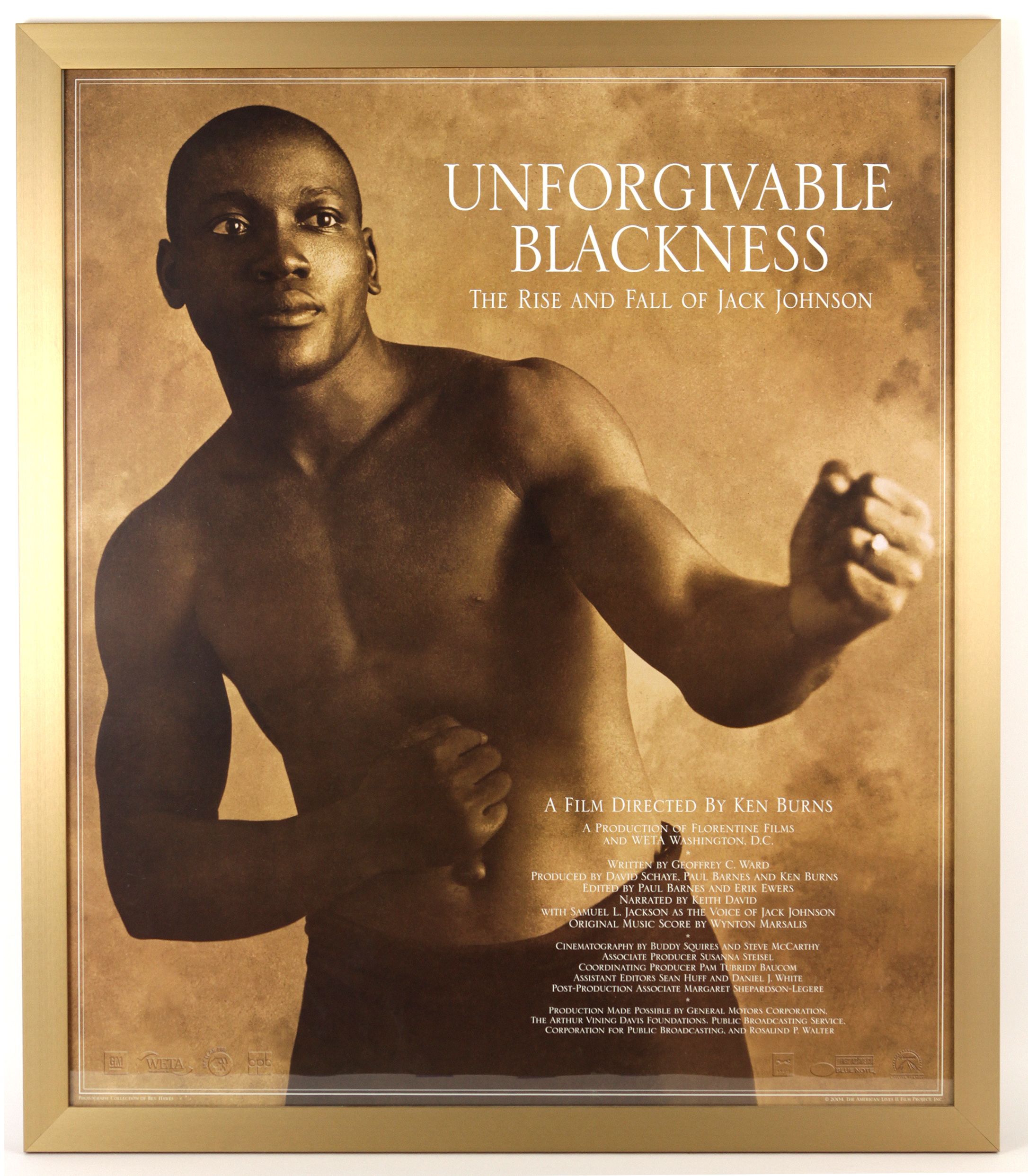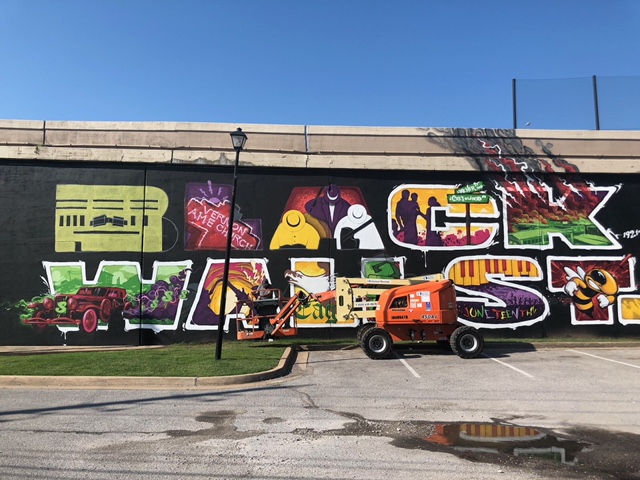
Jack Johnson Finally Forgiven For Being a Man
Jack Johnson was the first African American to win the heavy weight boxing championship at the height of Klan activity and Jim Crow laws meant to keep the ugly heel of intolerance on the necks of Black Americans. Accused of wrongly applied crimes for essentially dating white women, he fled the country and later returned to serve a year in prison. The conviction robbed him of a title that could not be taken away in the ring. By some estimations, he lived out his life in shame. Until an actor stepped forward to ask for redemption.
Truly the only law Johnson broke was the unwritten one saying a Black man could not marry a white woman (he married three) and was finally charged with a controversial and wrongly applied law to bring down the champion who lived life on his terms. After returning from living abroad, Johnson came back and served a sentence which had the added harm of forbidding him from boxing in many states. The laws were stacked against him and robbed him of his ability to do what he was best at; beat all comers in the boxing ring. At the time, it meant he was defeating a series of white men.
At the height of his boxing career, the boxing community was so bent on finding someone to defeat him it was called the search for the “Great White Hope.” Many able men answered the call but no one defeated him. It only made him a more hated target. After all his troubles, he was reduced to becoming a vaudeville act. He later died in 1946 in an automobile accident. He died with the knowledge he was not guilty. Some powerful men tried to remedy this travesty of justice. He first won the title in 1908 at a time few white men would fight a Black man.
Over the last twenty years Johnson was the subject of much lobbying to pardon him for a crime he never committed. Should have been a no brainer. For reasons passing logic no pardon was ever made on his behalf. There was a play and movie about his life called “The Great White Hope.” The play opened in 1967 and the movie came out in 1970 starring James Earl Jones as Johnson and Jane Alexander as Eleanor Backman his wife. The play won Tony Awards for the pair and Academy Award nominations for their screen roles. The production was not thought of a drama about racism; it was more about a man’s struggle to be himself. Much like Muhamad Ali’s struggle to adopt his new religion of Islam was the story of Jack Johnson.
United States Senator John McCain has tried for years to win a rare presidential pardon for Johnson. He was joined by former United States Senator Harry Reid to lobby Presidents George W. Bush and Barack Obama to right this wrong. They were not successful in their well-meaning attempts to obtain justice. Recently actor Sylvester Stallone, who created the beloved character Rocky Balboa contacted President Donald Trump to pardon Johnson.
Balboa has been called the movie equivalent of the Great White Hope as he won the heavy weight championship on film several times. Moreover, the popularity of the Rocky films has been credited with propping up the boxing sport over the last forty years. When Stallone came calling, Trump took the meeting. Many are lauding his decision to pardon Johnson and on one level it is a case of correcting a miscarriage of justice. Trump also loves the notion of doing what former Presidents like Obama could or would not do. In this case he pardoned Johnson last week. So, 72 years after Johnson’s death, Johnson is no longer a felon. While Trump is far from famous for his racial sensitivity, for whatever his motivation, this was a good deed for the Johnson family and others who have been wrongly accused.
Tulsa School Board Renames School Slightly and Cowardly
The Tulsa School Board chose to blow a chance to fix the name of Robert E. Lee Elementary by changing it to Lee Elementary. Hard to say whether the decision was more cowardly or racially insensitive. It is also an insult to the intelligence of thoughtful Tulsans who are ready to remove all vestiges of Tulsa’s racist past. Now we have a weak slap in the face over a change that should not have been difficult.
The decision may have been prompted by the renaming of the Brady district with a derivative of the Brady name. The decision was an opportunity to remove the name of a Klan member. The unchange was a slap in the face. Tulsa’s face was still stinging over not removing Brady from street signs, when the Tulsa School Board repeated the unthinkable act of cowardice. As it turns out some on the school board regret their decision.
Hopefully, the board pledged to create the most welcoming and tolerant atmosphere in the schoolroom and can find a way to undo a wrong decision. A wise man or woman can always change their mind, a fool never does.
Mental Health Month Reminds Oklahomans the Problem Grows As Resources Shrink
By the way, Tulsa and Oklahoma are in the midst of a mental health crisis that grows worse each year due to a number of issues like shrinking resources, prevailing stigmatization of mental illness and substance abuse addiction. The problems domino into every sector of society and those funds to treat the hurting are shrinking. In short the problem is busting at the seams while funds to treat mental health are shrinking to embarrassing levels.
Education leaders fought hard and earnestly to increase their funding for salaries and services. Some point to the reluctance of state law-makers to increase what some describe as unfairly low tax rates for oil and gas production. The intention is not really asking for an increase but rather to bring it back to previous levels. Quite frankly, Oklahoma republican law-makers appear to be on the payroll of the petroleum industry while cashing state checks. That is a travesty given the grave problems facing every community in the state. While the term ‘grave’ gets used often in describing state problems, it is rightly applied to Oklahoma mental health problems.
How bad is it? One in 7 Tulsa area people have a mental illness, Tulsa Public School staffers discover a suicide note once a day in elementary and middle schools, Tulsans with severe mental health illnesses die 27 years earlier on average than all Oklahomans. 10,000 people are incarcerated in Tulsa County jails with mental illness. Thirty to 40 percent of them are on psychotropic drugs. The life expectancy rate for a Tulsan with severe mental illness is 49.4 and by age 19, 1 in 6 Oklahoma children suffer a least four traumatic experiences such as witnessing domestic violence, substance abuse or mental illness in the household, loss of a family member due to incarceration, separation or divorce, or suffering from abuse or neglect. It goes on and on. The increase of opioid drug abuse and up to 40 percent of all returning veterans suffer from PTSD and other mental health problems are contributing to this crisis.
May isn’t the only time to be thinking about this problem. People in the helping professions need to storm Oklahoma City to drastically increase funding for mental health issues. All these stats are worse in communities of color. When the rest of the state is catching a cold we are catching pneumonia.









